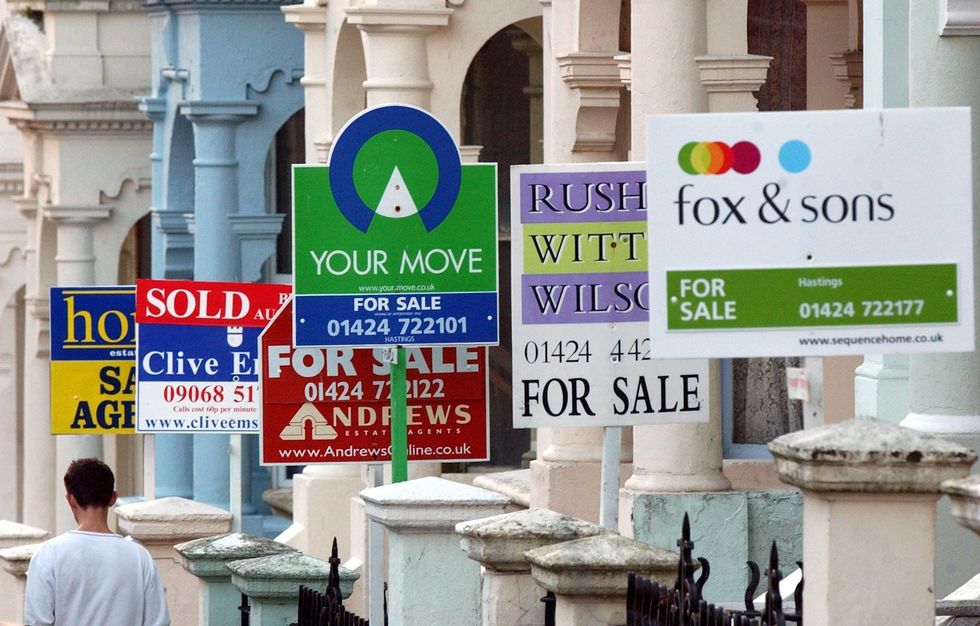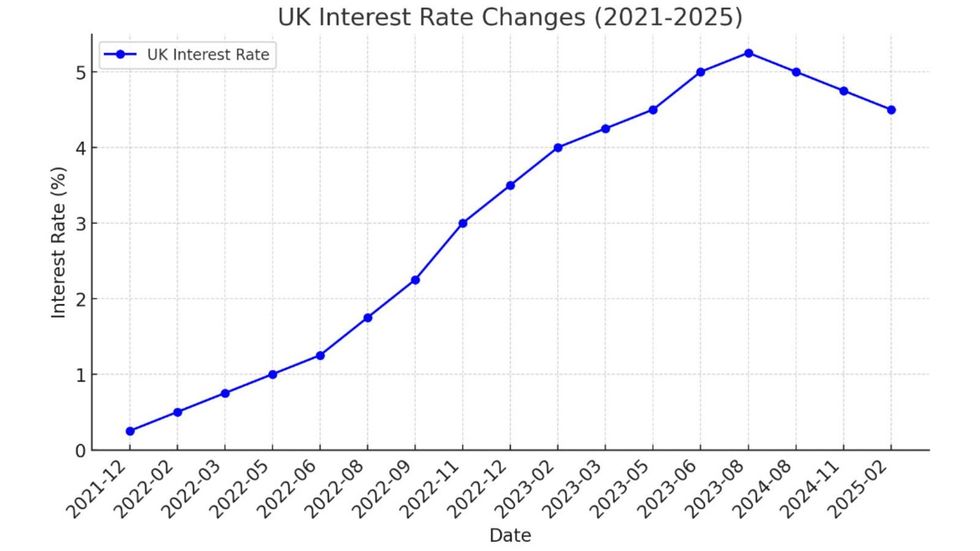Michelle Dewberry left lost for words by millionaires ‘fleeing’ Britain as leftist tax demand ‘backfires’
GB NEWS
Recent changes to stamp duty discounts have resulted in a rush of activity in the property market
Don't Miss
Most Read
Trending on GB News
Britons are making drastic moves to complete property purchases in order to beat the hike to stamp duty, the tax levied on the sale of single homes.
UK house prices have surged by 5.4 per cent in the year to February 2025, marking the fastest growth rate in more than two years, according to new official figures.
The annual rate increased from 4.8 per cent in the year to January, data from the Office for National Statistics (ONS) reveals, with the acceleration in house price growth having been building since last summer.
Market activity has picked up significantly as buyers rushed to complete purchases before stamp duty increases take effect. Analysts suggest this performance shows genuine strength in the property sector.

Britons are rushing to complete property purchases ahead of an important stamp duty deadline
GETTY
Across the UK, house prices were higher in February compared with a year earlier. The average property price reached £292,000 in England, reflecting a 5.3 per cent annual growth rate. In Wales, prices rose to £207,000, an increase of 4.1 per cent.
Scottish properties saw values climb to £186,000, with a robust 5.7 per cent growth in the 12 months to February 2025. Northern Ireland experienced the strongest performance.
Average house prices reached £183,000 between October and December 2024, surging nine per cent from the same period a year before.
Within England, significant regional variations were evident. The North West recorded the highest house price inflation at eight per cent. London lagged behind with the weakest growth at just 1.7 per cent.
 Properties in Waltham Forest, London, sell the quickestPA
Properties in Waltham Forest, London, sell the quickestPAThe surge in activity has been largely attributed to buyers rushing to complete purchases ahead of stamp duty changes. From April, first-time buyers began paying stamp duty on properties costing more than £300,000.
Previously, they were exempt from paying the tax on properties up to £425,000. The stamp duty changes apply in England and Northern Ireland.
Santander UK reported that house purchases tripled in March compared with a year ago. The bank noted that the stamp duty deadline "sparked a new lease of life into the housing market".
Sarah Coles, head of personal finance at Hargreaves Lansdown, said February's figures showed the "peak of activity, as buyers rushed purchases through the system before the stamp duty holiday ran out at the end of the month".
This rush to beat the tax changes has significantly contributed to the recent market momentum. Despite economic headwinds, experts remain positive about the housing market's underlying strength.
Elliott Jordan-Doak, a senior UK economist for Pantheon Macroeconomics, said: "Official house prices will be boosted for at least another two months by the flurry of activity ahead of the stamp duty changes. But there is genuine strength in the housing market."
Jordan-Doak noted that house price inflation rose to the highest rate since December 2022 in February, "illustrating the resilience of the housing market to a barrage of headwinds in high borrowing costs, easing GDP growth, fiscal events, and geopolitical uncertainty".
Jason Tebb, the president of property search portal OnTheMarket, said: "Affordability remains a challenge but with a number of lenders reducing their mortgage pricing over the past few weeks, this may continue to ease if swap rates decline and other lenders follow suit."
LATEST DEVELOPMENTS:
 The Bank of England has made multiple changes to the base rate over the years CHAT GPT
The Bank of England has made multiple changes to the base rate over the years CHAT GPT Tebb suggested cheaper mortgages would boost market activity. Recent mortgage trends suggest potential relief for homebuyers in the coming months.
Swap rates, which lenders use to price mortgages, have dipped following US President Donald Trump's tariffs announcement earlier in April.
This decline comes amid expectations that interest rates will be cut further in the coming months with experts believing these changes could feed through into lower mortgage pricing.
Several lenders have already begun rolling out cheaper deals in response to the market shift. Tebb highlighted the broader implications of this trend.
"Cheaper mortgage rates would certainly help boost activity and transactions, which are of benefit not just to the housing market but wider economy," he said.








